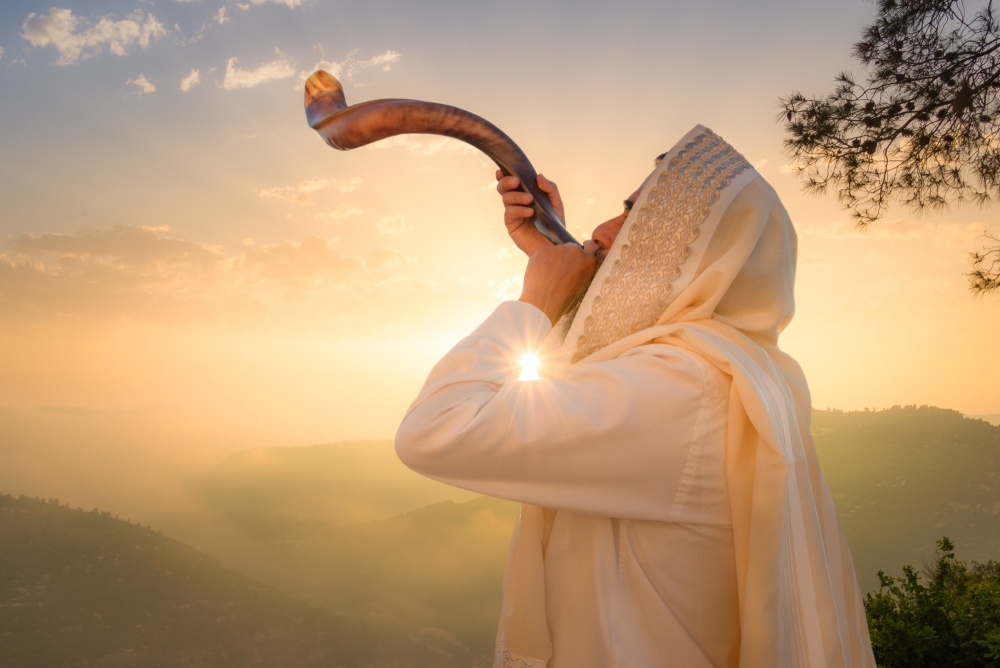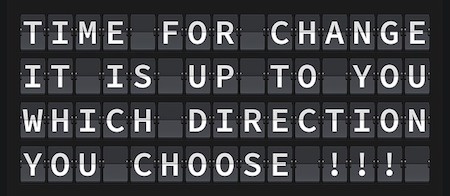
That man sins is part and parcel of being human. It is the basis of the most special day of the year, that of Yom Kippur. Proper preparation for, and observance of, Yom Kippur enables sin to provide a mechanism for growth and character development. So much so that our Sages declare that one who sins, and then repents, is on a higher level than one who has never sinned. Hence after Adam ate from the forbidden fruit G-d approaches him hoping that he will admit his sin, and (perhaps) be forgiven. Yet Adam does not do so.
Rather, he blames his wife. This, Rashi notes, was the height of ingratitude. G-d had created Eve for Adam’s benefit, to be his partner, his ezer knegdo. And yet instead of showing appreciation for this wonderful gift, he blamed her for his failing. It was this lack of gratitude that was man’s undoing. One of first and primary messages of the Torah is the centrality of gratitude.
As it was at creation so too it was to be for redemption. The Jewish people had suffered for years. Hard labour, excessive taxation, even murder. G-d heard their cries and tasked Moshe to redeem the people from Egypt, and to appease Moshe brought Aharon as his partner. When Moshe and Aharon approach Pharoah, bringing G-d’s message to “Let My people go”, Pharoah’s responded “Who is the Lord that I should heed him and let Israel go? I do not know the Lord, nor will I let Israel go” (Shemot 5:2)
But that was not enough. Like many a despot he became even more ruthless. “You shall no longer provide the people with straw for making bricks as heretofore; let them go and gather straw for themselves… Let heavier work be laid upon those involved” (Shemot 5:7).
Yet Pharaoh would soon find out who the Lord is. A series of plagues, increasing in severity, would devastate the country, leaving no doubt who the true G-d is.
“The Lord said to Moshe, say to Aharon, 'Take your staff and stretch forth your hand over the waters of Egypt, over their rivers, over their canals, over their ponds, and over all their bodies of water, and they will become blood, and there will be blood throughout the entire land of Egypt',…Moshe and Aaron did so, as the Lord had commanded, and he [Aharon] raised the staff and struck the water that was in the Nile before the eyes of Pharaoh” (Shemot 7:19-20). While Moshe and Aharon were to both stretch their hands over the waters of Egypt only Aharon was to actually strike the water turning it to blood.
Similarly, with the second of the plagues, that of the “frogs, “The Lord said to Moses, say to Aharon, 'stretch forth your hand with your staff over the rivers, over the canals, and over the ponds, and bring up the frogs on the land of Egypt" (Shemot 8:1). It was Aharon, and Aharon alone, who was to bring forth the frogs.
Continuing this trend of Moshe instructing Aharon to bring forth the plagues, “The Lord said to Moshe, say to Aharon, 'Stretch forth your staff and strike the dust of the earth, and it shall become lice throughout the entire land of Egypt'" (Shemot 8:12).
Yet, beginning with the fourth plague it is Moshe who is bring about the remaining plagues. “And the Lord said to Moshe, ‘Arise early in the morning and stand before Pharaoh…For if you do not let My people go, I will let loose swarms of insects against you and your courtiers and your people and your houses” (Shemot 8:16).
Plague five follows this newer pattern. “The Lord said to Moses, Come to Pharaoh and speak to him, 'So said the Lord, God of the Hebrews, Send out My people so that they may serve Me…behold, the hand of the Lord will be upon your livestock that is in the field, upon the horses, upon the donkeys, upon the camels, upon the cattle, and upon the sheep, a very severe pestilence” (Shemot 9:1-3).
Plague six, that of Shechin, is even more striking. “Then the Lord said to Moshe and Aharon, “Each of you take handfuls of soot from the kiln, and let Moshe throw it toward the sky in the sight of Pharaoh” (Shemot 9:8).
In a reversal of the first of the makkot, Moshe and Aharon are both instructed to take a handful of soot, but this time it will be only Moshe who throws it heavenly.
And it is Moshe alone who brings about the seventh plague, that of hail “The Lord said to Moshe, ‘Stretch forth your hand heavenward, and hail will be upon the entire land of Egypt, upon man and upon beast and upon all the vegetation of the field in the land of Egypt" (Shemot 9:22).
So too by the plagues of locusts and darkness that we will read about next week. It is Moshe alone who is the instrument to bring about the plagues. The tenth and final plague will be brought by G-d Himself[1].
Moshe – as the redeemer of the Jewish people – should have brought about all the plagues. But the importance of gratitude could not allow that to happen. Moshe’s life was saved due to being put into the waters of Egypt. And his life was spared because he buried the Egyptian in the sand[2]. Smiting the waters of Egypt or bringing lice from the ground would demonstrate a lack of gratitude.
This is astonishing. Pharaoh was evil, and worrying about saying thank you to water and sand is not something that should stand in the way of punishing Pharaoh. But that is not the way of the Torah. So important is showing gratitude that Moshe could not bring about these plagues[3].
If this is how we must treat inanimate objects, imagine the gratitude we must display towards humans.
We are helped every day by numerous people, including those with whom we share very little. They may hold views diametrically opposed to ours – and they may be rotten people. But that does not excuse us from displaying gratitude. That is basis of creation and the secret to redemption.
[1] This telegraphs the message that all that Aharon and Moshe did was (almost) for naught. It is only G-d who can bring about redemption.
[2] While the fighting Hebrews knew about this it appears few others did – had he not been able to bury him who knows if he would have managed to escape.
[3] In a similar vein, the Torah tells us that non-kosher food is to be “thrown to the dogs”. This our Sages say is reward for the dogs not barking or biting when the Jews left Egypt.


